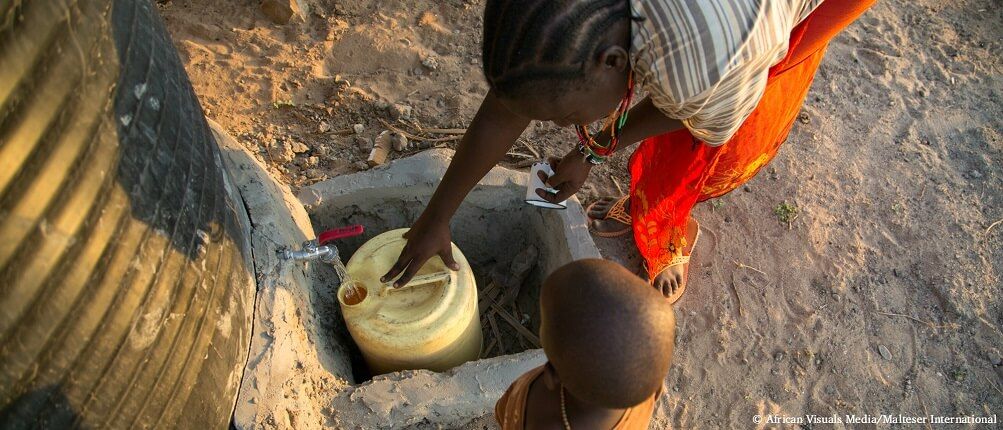
This project has been completed.
Better prepared for the next drought
Clean water is a very scarce resource in the remote district of Illeret, a drought-plagued region in northern Kenya, close to the Ethiopian border. Despite being located on the shore of the Turkana Lake, Illeret has practically no drinking water, as the lake water is too alkaline and not safe. The more than 15,000 semi-nomads from the Daasanach tribe who live in this region usually fetch their water from unprotected sources, and then store the water in dirty, open containers. Almost three quarters of the children suffer regularly from diarrhea.
To help the Daasanach make the best of the little resources they have available, Malteser International is teaching the herders to collect pure rainwater for drinking. In this way, they can prepare for the extended dry periods, which are happening ever more frequently. Malteser International also teaches the population to handle water hygienically, so they can avoid contamination and diseases.
After the devastating drought that affected millions of people in the Horn of Africa in the summer of 2011, Malteser International helped more than 80,000 people in northern Kenya survive with food and medicine. Illeret belongs to an especially remote region with difficult access, and is therefore one of the country’s most neglected areas. Even though the area is sparsely populated, rapid population growth, dwindling resources and ever more frequent droughts make it one of Kenya’s regions most affected by climate change.
After providing emergency drought relief in 2011, Malteser International helped local representatives determine the priorities for future activities based on the population’s most pressing needs. In the coming years, a focus will be placed on expanding and improving the water supply, along with hygiene and education.
- Improving the quantity and quality of drinking water.
- Improving hygiene and sanitary conditions.
- Reducing the population’s vulnerability to regular drought periods.
- Construction and installation of rainwater harvesting systems in households and schools.
- Training sessions on the topics of water and hygiene for the general population and in schools.
- Construction of latrines and wells with hand pumps.
- Regular testing of water samples for contamination.
Country info
Capital: Nairobi
Area: 582,650 km²
Population: c. 53.8 Million
Project data
Donors: Germany's Relief Coalition (Aktion Deutschland Hilft), Sternstunden e.V., Malteser Hospitaldienst Austria, Malteser International








